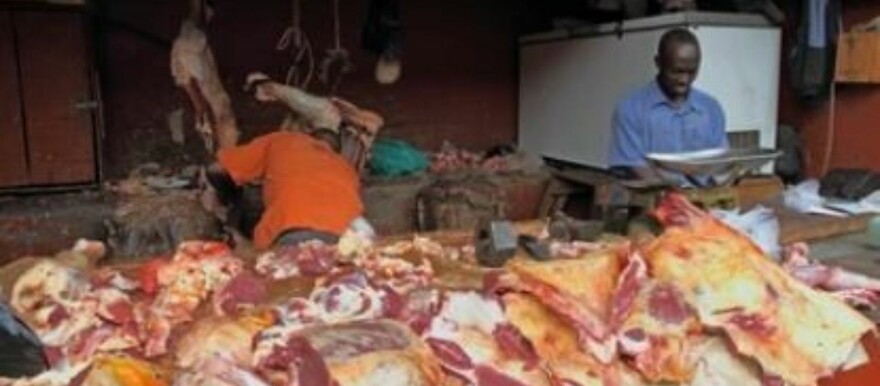Butcheries in Juba have announced an increase in the prices of beef, chevon (goat meat), and mutton, attributing the hike to inflation in the country and the constant depreciation of the South Sudanese Pound (SSP) against the U.S. Dollar.
A circular dated 14 May 2024 signed by Peter Lodu Gabriel, the secretary of butchers’ affairs at the Central Equatoria State Butchers Union, outlined the new pricing structure which stipulated that a kilogram of beef will now be sold at SSP 15,000 while goat and sheep meat will cost 18,000 per kilogram.
This marks a significant increase from the previous rates of SSP 8,000 per kilogram of beef and 10,000 SSP for mutton and chevon.
The price adjustments are seen as a necessary step to stay afloat in an economy that has been struggling with financial instability for years.
However, the price increase is expected to have a considerable impact on the daily lives of the residents, as meat is a staple in the diet of many South Sudanese.
Jennifer Keji, a resident of Juba said the steep increase in prices has led to a drastic reduction in meat consumption, as households struggle to cope with the rising cost of living.
“It is not only the prices of meat that have gone up but everything has changed. You find that everyday traders keep on increasing the prices,” she stated. “Look at the bus drivers, they increase fares almost every day, today you are charged differently and tomorrow you will get another story. So, life is becoming very hard.”
Another Juba resident, Akuot Thon Leek, said the people of Juba are facing the reality of changing market prices where even necessities like meat are becoming a luxury.
“The rise in the cost of living in terms of foodstuffs is very alarming. An average family cannot afford to buy a kilo of meat due to the high charges in the market.” He said. “We are likely to become vegetarians, and not by choice.”
For his part, John Juma, a butcher who operates in Juba’s Mauna area, said they have been struggling to cope with the economic volatility and are concerned about the sustainability of their businesses.
“We are at a breaking point because livestock prices are skyrocketing and with the local currency losing value every day, we have no choice but to pass on the costs to the consumers,” he explained.
Juma highlighted the challenges posed by insecurity along highways, with deteriorating road conditions such as between Juba, Kapoeta, and the Pibor Administrative Area severely impacting the cattle and goats supply chain.
As the pound depreciates, the cost of imports, including essential commodities, has risen, further exacerbating the inflationary pressures. Economic analysts closely monitoring the situation said the situation might worsen unless the government implements the right financial policies to stabilize the economy.




